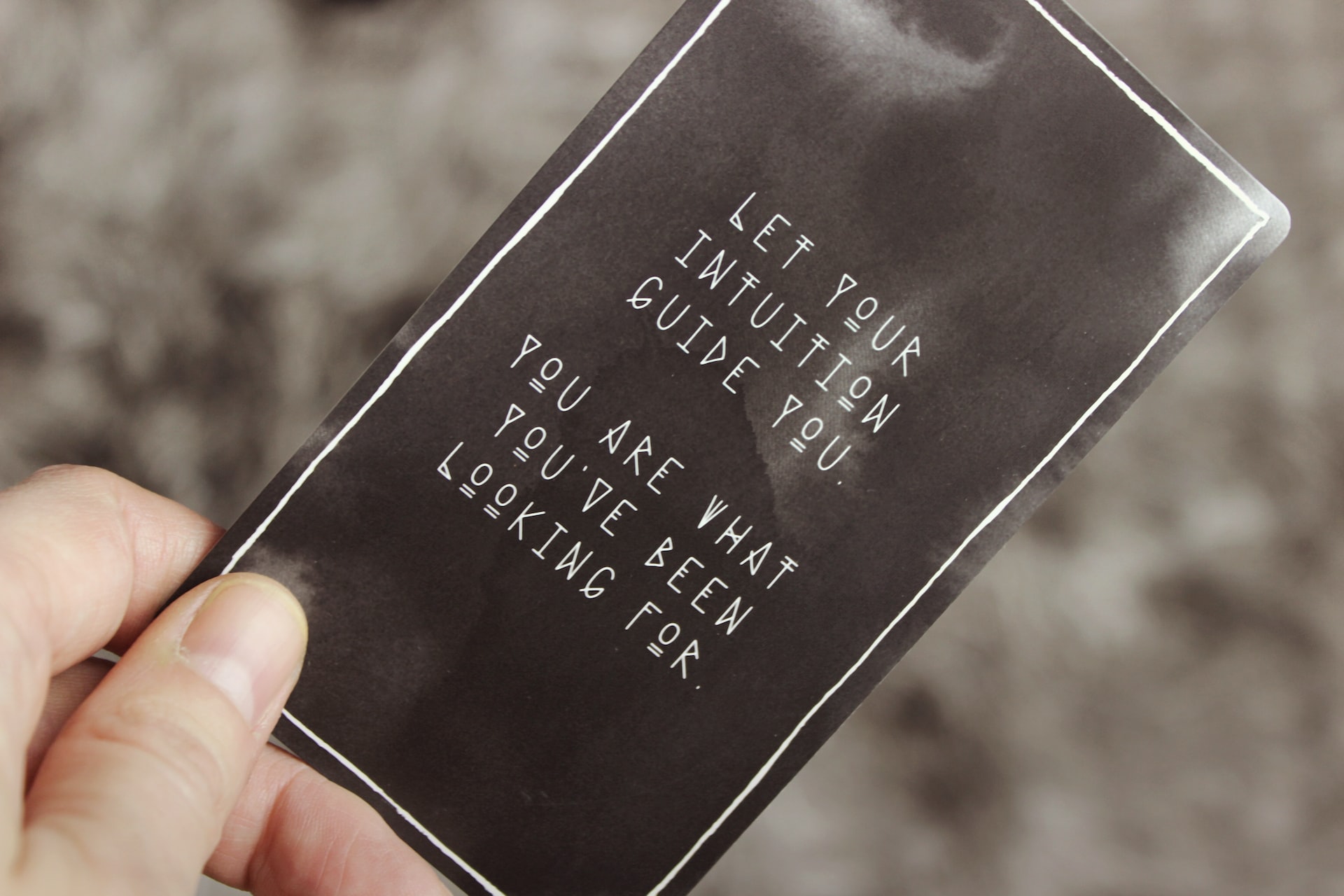
Body + Mind is reader-supported. We may earn an affiliate commission when you buy through some of the links on our site.
Do your “spidey senses” sometimes tingle? Have you ever kicked yourself for not following your gut instinct? It turns out that there’s a lot more to the science of intuition than you’ll hear about in the media.
Scientists have discovered that your body can often tell the right course of action before your logical self can apply reason. The human nervous system is infinitely complex — your brain and responses you have honed through experience send you signals when something is amiss. These signs might manifest as a sinking feeling in your belly, nagging thoughts that you can’t erase through meditation, or even physical illness.
Everyone should know the importance of trusting yourself — it will help you make better decisions and improve your life. Here are seven exercises to help you hone your intuition.
Freewriting is a fabulous tool to turn to whenever you feel stuck — including when you have that nagging feeling that something isn’t quite right. Writers use it to brainstorm ideas and get words on paper when their thought processes don’t seem to flow in a steady stream.
What makes it so powerful is the lack of censorship. When you freewrite, don’t worry about grammar or spelling. Beyond that, toss logic right out the window. If a thought pops into your head, put it on paper.
To do this exercise, pick an uninterrupted time to sit quietly for 15 to 30 minutes. Bring to mind the issue weighing on your mind. Then, put your pen to paper — or fingers to keyboard — and scribble down anything that comes to mind.
Then, examine your work. Do you see a consistent theme with your concerns? Are there ways you could address your fears? If not, how can you alter your course of action to feel more comfortable?
Another way to discover the importance of trusting yourself is through journaling. You might be surprised how well you do at making random predictions based on your gut instinct. Researchers who studied over a thousand volunteers discovered that people often reacted physiologically to risky courses of action well before their logical brain sorted out the danger.
Start a prediction journal as a fun game. You can include your thoughts about anything you like — from the outcome of the next election to whether your favorite colleague will arrive at the office early, late or right on time. Highlight or check the ones you get correct. You might be surprised to see your accuracy improve over time.
If you have chronic pain, you might be familiar with using body scan meditations to ease your aches. Doing so draws your awareness to any tense or tight areas, letting you breathe love, light and healing into them. It’s a fabulous tool for building awareness of your brain-body connection.
You can use a similar technique to tune into what your body is telling you. Find a place where you can lie quietly. Draw your awareness to your physical state, scanning yourself from your toes to your head. Then, think about a problem that’s weighing on your mind, where you’re unsure of the correct action to take. Notice what happens to your body.
Do you start to tense up when you think of certain alternatives? Pay attention — your body could be telling you that something isn’t quite right with that proposed course.
Bibliomancy is the ancient art of predicting the future by utilizing written passages. You can use this method to hone your intuition and practice trusting yourself.
All you have to do is select your favorite volume and let it fall open to a random page. Practitioners often choose religious volumes, but you can use any book you like if you’re an atheist. Let your eyes rest on the first passage they see. What do the words tell you? Do they offer any insight into your situation? You might begin to understand the importance of trusting yourself.
Walking gets oxygen flowing to your brain, waking up your neurons. It’s also the ideal time to tune into the present and listen to what your spidey senses are telling you.
As you stroll, name the various things you can see, hear, touch, smell and taste. Giving your mind mundane sensory tasks to focus on lets you clear your head of rumination loops that might have you stuck. Try not to think about the issue on your mind during the walk. Instead, return to it when you finish and see if looking at the situation with fresh eyes doesn’t provide a better path forward.
Finally, one of the best ways to learn to trust yourself by honing your intuition is to sit in meditation. All you need is a quiet space to shut out distractions and listen to what your internal self is telling you.
Begin by drawing your awareness to your breath. Attempt to clear your mind as much as possible. However, thoughts will intrude — this is normal. Imagine you have a little neutral scientist in your head taking notes. As these ideas pop into your brain, notate them, then let them go.
People sometimes make bad decisions with the best intentions, even when they get a nagging suspicion that something isn’t quite right. It’s important to learn to trust yourself and heed that still, small voice inside that might seem illogical but always has your best interest at heart.
The good news is that you can develop your intuition and learn to trust yourself. Practice the six exercises above to stay in touch with your higher self and make better choices.